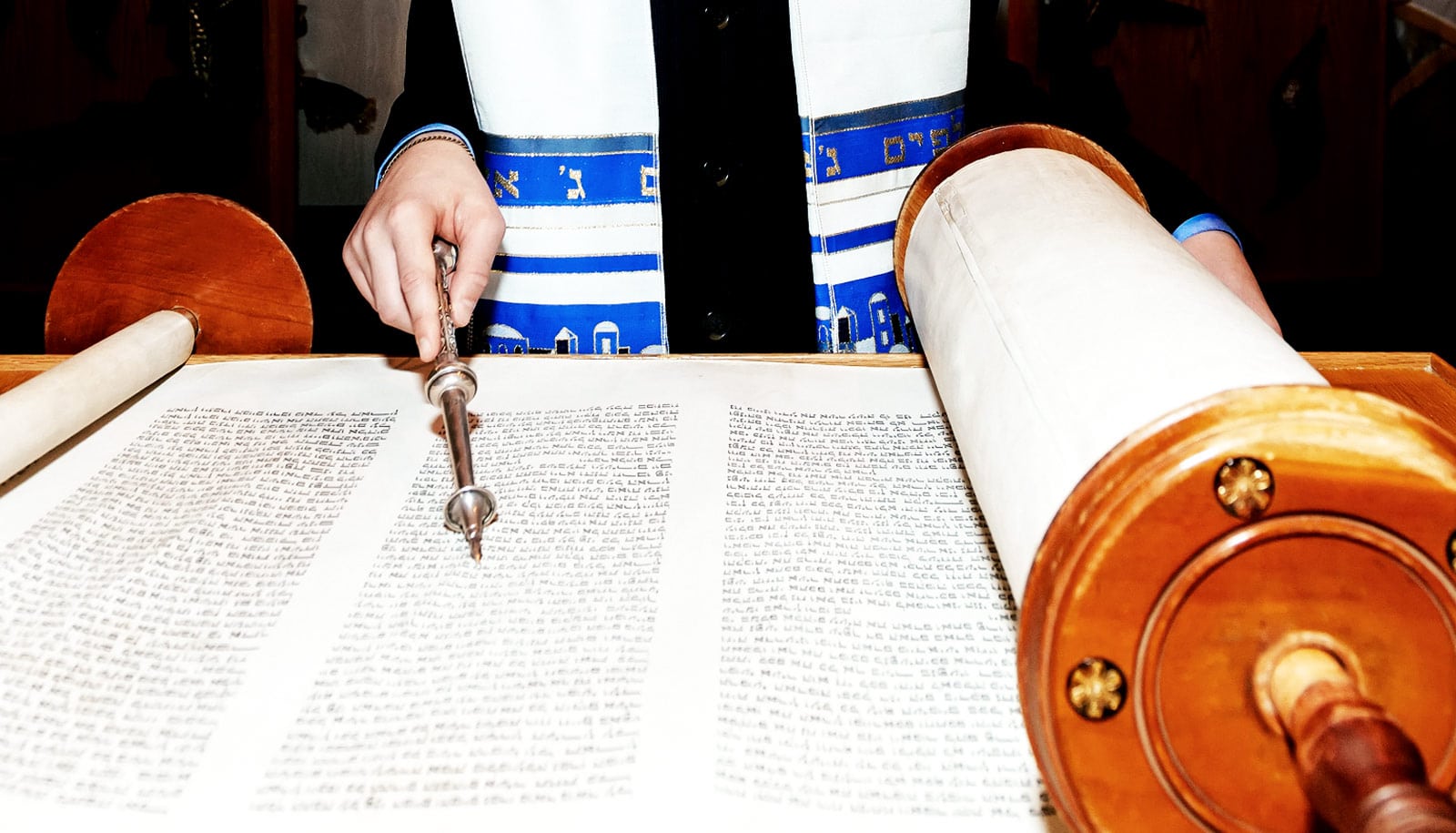
(Credit: Getty Images )
The first American Jewish literary novel is now published
"'Cosella Wayne' transforms what we know about the history of early American Jewish literature..." Its discovery was recent, as was its publication.

The first American Jewish literary novel—Cora Wilburn’s Cosella Wayne—is just now seeing publication.
Wilburn was one of the most prolific American Jewish writers of the 19th century. She wrote poetry, essays, and fiction that grappled with assimilation, poverty, child abuse, and feminism. A fellow writer described her as “the most interesting woman I know.” But by the 1920s, she’d been completely forgotten.
Wilburn is now getting her due. The University of Alabama Press has published Wilburn’s 1860 novel, edited and with an introduction by Jonathan Sarna, the professor of American Jewish history at Brandeis University.
Sarna discovered the novel while doing research on Wilburn’s life and realized it was the first American Jewish literary novel. Wilburn was actually the progenitor of the American Jewish literary canon.
“Cosella Wayne transforms what we know about the history of early American Jewish literature and adds an important new name to the pantheon of 19th-century Jewish women writers,” Sarna says.
Who was Cora Wilburn?
Sarna also tracked down Wilburn’s diary at the Jacob Rader Marcus Center of the American Jewish Archives in Cincinnati. Excerpts from the diary appear in the new book and reveal that Wilburn drew upon her own life for Cosella Wayne, making it the first example of an American Jewish writer using an alter ego in her fiction.
Wilburn was born Henrietta Pulfermacher in Alsace in eastern France. She lost her mother at an early age and was raised by her father, a crooked gem merchant who hauled his family around the world in search of foreigners to swindle. In one scheme, he impersonated Sir Moses Montefiore, a British financier, philanthropist, and Sheriff of London.
Wilburn loathed her father, who apparently abused her, and she shed her birth name when she got to America.
Her writing career was born of the poverty she was plunged into with her father’s death in 1845. After a few years working as a seamstress, she started making her living by writing poems, essays, and fiction for journals and magazines.
She was a committed abolitionist and feminist who knew the constraints she faced because of her gender. “Were I not bound by woman’s fate, that keeps / Me here inactive, while man grandly reaps, / I would, in Israel’s sweet and holy name, / Help to enkindle the world’s freedom-flame,” reads one of her poems.
Spiritualism and later life
In the 1850s, Wilburn joined the Spiritualist movement, which held that the deceased communicated with the living from a spirit world. She published many of her writings, including Cosella Wayne, in Spiritualist journals.
Some Spiritualists championed free love, but not Wilburn, who advocated sexual purity. She was more drawn to the religion for its opposition to slavery and its ties to the women’s movement. “Let woman be free; and she will be what God ordained and Nature desired, a beautiful loving being, full of holy sympathies and boundless aspirations,” she wrote in an essay.
Wilburn, who briefly converted to Catholicism following her father’s death, was anguished by her turn away from Judaism. “A lot of guilt comes out in the diary,” Sarna says. “She feels God has punished her and she deserved it.” She returned to Judaism upon her arrival in the United States in 1848, and in 1869, likewise turned away from Spiritualism, remaining a Reform Jew until her death.
But by the 1870s, Wilburn’s writing had fallen out of fashion. Her “woman’s fate” meant living alone in Duxbury, Massachusetts, plagued by infirmities and dependent on handouts from Boston’s Jewish community. She died in 1906, as she wrote, “homeless, almost friendless, sick, uncared for as I deserve to be.”
The plot of Cosella Wayne
Cosella Wayne tells the story of the title hero’s plight after her mother dies in childbirth and an evil gem merchant, Menasseh Moshem, abducts her. Moshem is an alcoholic who terrorizes and physically abuses Cosella.
Eventually, Cosella escapes to the home of a Catholic neighbor, though she finds no refuge in that faith either. Her adopted mother turns out to be an adulteress and Cosella undergoes a religious crisis.
When Moshem dies, he leaves Cosella penniless and she’s forced to work as a seamstress for pittance wages in Philadelphia. On the verge of death, Cosella is rescued by members of the Spiritualist movement and reunited with her true father, a Spiritualist leader, who had spent years searching for her.
Valuable descriptions
The novel is no literary masterpiece, but Sarna says it provides invaluable accounts, based on Wilburn’s own travels, of Jewish communities and ceremonies around the world about which historians know very little.
Cosella travels to India for Passover. Her host’s outfit, Wilburn writes, was “Turkish in form, and was composed of rainbow hued silk and ruby colored velvet, richly embroidered with gold. The snowy muslin folds that veiled her bosom were inwrought with precious gems; three bracelets, richly studded with diamonds and rubies, glistened from each fair, round arm, as the velvet sleeve flew back.”
In Germany at Yom Kippur services, Cosella beholds male congregants “clad in the habiliments of the grave, the sweeping shroud of linen, with its wide cape edged with lace, the conical cap upon their heads.” Women sit above in a gallery, wearing “dresses of pure white, emblematic of the forgiveness of sins. … Some retain their glittering jewels, their pearls and rings; but the truly pious divest themselves of all outward adornment, and stand in true humility before the Lord.”
At one point, having fallen on hard times in Philadelphia, Cosella is forced to do menial labor. Accounts of the city from this period usually focus on the upper classes and high society, while Wilburn’s describes poverty, Sarna says.
Cosella, “once the admired of many, was known as ‘the cheap seamstress;’ weaving life-dreams, soul-prophecies, and heaven-thoughts, queries and answers, in with the garments that her fingers wrought. And as time passed on, the hope that had cheered and brightened slowly died away.”
Sarna says he hopes the publication of Cosella Wayne restores Wilburn to her rightful place in the pantheon of American Jewish writers. “It’s an amazing novel, full of amazing stuff,” he says. “And it’s so Jewish.”
Source: Brandeis University
The post The first American Jewish literary novel is now published appeared first on Futurity.
Share this article:
This article uses material from the Futurity article, and is licenced under a CC BY-SA 4.0 International License. Images, videos and audio are available under their respective licenses.


